This is the Sunday edition of Culture Study — the newsletter from Anne Helen Petersen, which you can read about here. If you like it and want it in your inbox, consider subscribing.
Misogyny is a loaded and limited word, at least in how it is traditionally understood: as the hatred of women. Within that definition, any person can deny it (much like they can deny the label of, say, racism) by pointing to the women they ostensibly like in their lives: wives, partners, daughters, coworkers. According to this understanding, a rapist isn’t a misogynist if he also loves his daughter. Nor is Donald Trump. Women — because they are women, and theoretically do not hate themselves — are also immune to the description. A term like “sexism” fails in similar ways: if a man votes for Trump but also promotes women within his company, can you convincingly argue he thinks men are superior to women?
But in a society where no one hates or is hostile towards women save the most pathological of criminals, how do we explain, well, everything? Why does the wage gap persist? Why are leadership positions still predominantly filled with men? Why is feminized labor systematically undervalued, why is the division of domestic labor still profoundly unequal, why is women’s physical pain discounted and ignored, why have we allowed women’s labor to take the place of a legitimate social safety net? And why are all of these realities worse for Black and brown women? Why is everything so enraging and why does substantive change feel so impossible?
In Down Girl, Kate Manne argues that the dominant understanding of misogyny fails to describe its actual power and prevalence. Misogyny, she argues, is best understood as the whole, pulsing cloud of things that upholds patriarchal order. That means actual violence and hate speech against women, but it also expands to include all of the difference forces that define and enforce that sort of patriarchal control.
Within this understanding, someone who loves their wife can absolutely be part of the larger misogynistic world order, because misogyny isn’t always about direct action, but reaction — and the way women internalize or anticipate that reaction ahead of time. It shapes a world in which women are conceived of as “givers,” admirers, supporters, and self-sacrificing, and when they fail to serve that role, there are consequences. “She is not allowed to be in the same ways as he is,” Manne writes. “She will tend to be in trouble when she does not give enough, or to the right people, in the right way, or in the right spirit.”
Misogyny is outward hostility, then, but it also the feeling of shame, the fear of social shunning and loss of status, and the threat of desolation. You can see how women themselves — particularly white, straight, able-bodied women who are interested in maintaining their relative power within the status quo — both passively and actively participate in misogyny.
As Manne points out, “the misogyny of the most powerful white men — who are least subject to moral and legal sanctions and, indeed, may inflict harm with impunity — clearly harms vulnerable women disproportionately. But it is we, as white women, who tend to enable it, in ways that may be more or less connected with the aim of self-preservation.” Ivanka and Melania Trump, then, but also progressive white women who are loosely mad about the patriarchy but not quite ready to dismantle it if it also means dismantling the other hierarchies that privilege them.
I’ve been thinking about Manne’s understanding of misogyny as I’ve tried to make sense of various objects and moments and movements in culture right now. These things that have been pissing me off, but I’ve struggled to find the language to articulate precisely why. Because describing them, as I usually have, as “just part of the patriarchy” is insufficient and incomplete.
I’m using this piece to bring some of these ideas and items into one constellation, but I also want it to serve as an opportunity to think of more. Because all of these things are meant to be ideologically invisible — or at least “natural,” just the way things are, “not a big deal,” “just filling a need,” and generally unworthy of interrogation. But that’s how this particular sort of power replicates: by pretending it’s not.
This piece is not meant to shame anyone who’s found themselves vulnerable to these ideas: they’re engineered to beguile us. But if your instinct is to dismiss or downplay, I invite you to sit with that reaction and whatever justification comes to mind — and think about where it’s coming from. Why, exactly, does this thing feel defensible? And are you willing to let your feeling of vulnerability eclipse the suffering it ultimately inflicts — whether on yourself or others?
1) The Mother Oxford and Busy Mom Gear
I know it’s just an expensive shirt. (Please, take a look at the site, there is so much going on here). But like so much “performance gear” marketed “to busy moms,” it is a consumerist solution to the swallowing chasm of contemporary motherhood, which asks that moms “do it all” in flattering style. But wearing stain-resistant white is not “breaking the rules.” It’s reinforcing them.
The same holds true for any shortcut (“15 Recipes for Busy Moms!”) or tech promising to alleviate the stress of contemporary motherhood without addressing its source. The source is quite obvious: our society is still oriented around the idea that every family has one person capable of staying home full-time. This is not the reality for millions upon millions of families for any number of reasons, and yet expectations, school schedules, and thinking around paid leave and funding for childcare persist as if it were. Buying things cannot fill that gap, even when its promises to do so are alluring. In the end, any sort of consumption that promises to help women rarely does. They just convince us that whatever problems remain are ultimately our own.
2) MLMs
MLMs (Multi-Level Marketing schemes) are sold as a means for women to supplement bad wages, often earned from working in professions that have been historically undervalued because mostly women do them. That includes teaching and care work outside the home, but it also includes mothering. In practice, MLMs put women further into debt, financialize their intimate relationships, and if someone does make money, it’s almost always because they’ve recruited and convinced more women to join them in debt.
MLMs target and exploit the vulnerable, particularly those who feel a lack of control of their family’s finances or their own professional worth. They are not women’s empowerment through entrepreneurship. They are a pyramid scheme, and the top of the pyramid is patriarchy. If you don’t believe me, believe Meg.
3) Wine Mom Paraphernalia
I love wine and I enjoy drinking. I don’t love a world in which time drinking is positioned and celebrated as the only space in which a mom may give herself permission to experience something akin to liberation. It is not enough. It is not even close to enough.
4) Bougie Mom Weed
See above. Everyone should be able to get stoned if they want (and without criminalization, and forgiveness for past criminalization). If bourgeois parenting standards have become intolerable, rewrite the standards instead of numbing yourself to their realities.
5) Diet Culture and Fatphobia
If you or anyone you know has been enmeshed in diet culture you know how much mental space it occupies. It invades every corner of your life. You can’t think without also thinking about your size, what you’ve eaten and when you’ll eat next, the feel of your clothes, the comparisons with others around you. It fosters self-loathing and the general mindset that if you can’t control your weight, you’re a less moral or disciplined person. Do diets hate women? Maybe not, but they sure do teach women to hate themselves.
Diet culture and fatphobia reduce our understanding of “beauty” and “health” into ever more exclusionary boxes, which just means that people will dedicate more of their time and energy to trying to fit into them. Fatphobia in particular is rooted in fear of the black body, and its resilience is responsible for all sorts of shitty medical care. It is a distraction. It is racist. It is built on arbitrary ideals. It is responsible for so much sadness, and so many feelings of inadequacy. And it replicates wildly onto the next generation. If the experience is something you wouldn’t want your daughter or niece or anyone younger to go through, why are you invested in its maintenance?
6) TERFism
TERFs think they’re fighting to maintain one thing and they’re actually fighting to maintain quite another. I refuse to even validate their arguments by describing them.
7) “I survived it, you can too.”
This sort of rhetoric — particularly when it comes from more senior women in regard to office behaviors, amounts of maternity leave, attitudes towards toxic work environments, and work flexibility — is Lean In status-quo reinforcing bullshit. To mentor does not mean showing another woman how to navigate your path. It’s highlighting what was broken about the path you had to navigate, and then using your accumulated power to try and make sure that others don’t have to replicate the suffering.
The problem, of course, is that women have not been taught to be allies. We are implicitly and explicitly instructed to compete with each other, even when it comes to levels of suffering. None of this is accidental. The resultant divisions — built on race, on class, on education level, on body size, on ability, on maternity — are meant to dilute our power. If a woman HR representative responds to a report of sexual misconduct with questions that make you feel like you are at fault, that is misogyny. It does not matter if she is also a woman. Any attempt to absolve a behavior as “just doing your job” doesn’t meant that person is not misogynistic. It means their job, and the employer it serves, is too.
8) Shit like this

9) Birthrate Panics
If you want more people to have babies, create the conditions that make having those babies something that moms don’t have to buy bougie weed to survive. Make motherhood a choice that people want to make not just because of various biological or religious imperatives, and people will make that choice. It’s also okay if they don’t.
What’s more: lots of people are having babies. If someone’s freaking out it’s because they only really care about the supply of white babies.
10) Tradwife Instagram
In our interview last month, Kathryn Jezer-Morton described Instagram as “PR for the nuclear family,” and tradwife Instagram is a beautiful advertising campaign for “traditional” gender roles that promise to fix your obviously garbage-in-comparison life. But an account filled with milking cows and proliferating well-lit children masks the fact that these same women are enmeshed in understandings of themselves and their role in the world that keep them from leaving abusive situations, that discourage or diminish women’s education, and that understanding women in positions of power as abjectly sinful.
Tradwife content may seem extreme, but it’s not too far removed from the vision of the nuclear family celebrated in the vast majority of influencer content. Is an account like Ballerina Farm, for example, misogynistic? Maybe the better question is: what norms do these accounts exalt? And how does that exaltation, and our absorption of it, confirm and sustain patriarchal order?
11) Shit Like This
12) Hiding a Hobby from Your Husband or Boyfriend
If your husband gets mad at you for your yarn spending, if expenses that solely benefit you and your happiness are considered frivolous, if you “joke” about making sure your partner doesn’t see the credit card bill — your partnership is not equal and you have internalized misogynistic ideals about women and spending.
There’s a difference between a credit card or gambling addiction and, say, buying things that are not utilitarian or otherwise contribute to the overall project of mothering and domesticity. The idea that men get to spend and women budget is misogyny culture, full stop.
13) Advertising for General Use Products Directed at Moms
When a peanut butter advertisement is directed at moms, it is underlining the assumption that the mom not only does the grocery shopping, but is also ultimately responsible — for better and for worse! — for the health of the household. Advertisements model the way a product should be purchased and then used in the home; when a vacuum ad is directed uniquely at women, anyone other than a woman doing that work becomes “exceptional.”
14) Male Partner Exceptionalism Just Generally
A dad alone on the playground with their kid isn’t to be celebrated unless we also celebrate a mom alone on the playground with their kid. That we don’t, and never have, speaks to just how low the bar is for hetero male participation in parenting.
Celebration does not make these moments “normal”; it keeps them exceptional. It is settling for “he does more than his dad did” and calling it good, even thought it’s anything but.
15) Shit Like This
16) Paternity Leave is for Cucks
Our culture loves dads! We just don’t love them dad’ing in ways that aren’t explicitly and exclusionarily masculine. Dads can coach sports. But paternity leave means diapers and extended bonding and bottle feeding and, especially if taken for any amount of time alone, learning the actual requirements of caring for a child by oneself. It means actually understanding the complexities of caregiving, and then equipping oneself with the knowledge to do it oneself. If this became standard, it would alleviate the burden placed on women as the end-all-be-all of primary caregiving. Patriarchal order depends on this not becoming a reality.
So how do you ensure it doesn’t? Shame men for taking it. If you don’t believe this is something that happens in 2021, I invite you to absorb the extensive shaming of Pete Buttigieg for taking parental leave to care for twins.
American patriarchal order is wrapped up in an understanding of unquestioned American dominance; to undermine that order would, within this understanding, also undermine that dominance. Paternity leave has effectively become un-American. This understanding is reinforced when asshats like Joe Rogan and Tucker Carlson feminize men who care for their children, but it also happens vis-a-vis work environments where paternity leave is available (good outward PR!) but taking full advantage is discouraged, either explicitly (by one’s manager) or implicitly (by observing what happens to other men who do or do not take their full leave).
The effects of discouraging or eliminating paternity leave aren’t limited to your baby or your partner or your family. They contribute to an overarching structure in which caregiving remains the primary responsibility of women — and, by extension, all “damage” that caregiving responsibilities inflict on a career must also be absorbed by women.
17) Resistance to Extended, Paid Family Leave
This is the one that’s been flapping around in my brain all week, making me more and more furious. A lot of you have helped me try to work through this one, and I appreciate it, because sometimes my inclination is to throw my phone at the wall.
People have tried to make the argument for paid leave in logical terms for some time, but those arguments have failed. Which is part of why I appreciated Lydia Kiesling’s piece from earlier this week, which refuses to remain in the realm of the purely logical — and instead embraces body horror:
I hustled home to perform the routine I gingerly performed every couple of hours, in between breastfeeding the baby and trying to call EDD. I used a plastic spray bottle to squirt water at my shredded vagina. I sprayed analgesic mist onto the stitches between the vagina and the ass. I folded a giant plastic-backed pad into sixths and put it into the big underwear they give you at the hospital, which everyone tells you to steal in bulk. Whether you give birth vaginally or via C-section, there is a lot of blood that keeps coming out of you for easily two months. If you have a C-section, you are not supposed to lift things or walk up stairs for weeks; I have had multiple friends wind up in the hospital delirious with infected incisions. I am talking a lot about blood and torn vaginas and incisions here because birth is a physical trauma that affects the body in ways they don’t even tell you about beforehand. It’s been four years since I had my second child, and my pelvic floor is still not quite right. Please google “rectocele,” and let your imagination run wild.
When I think about myself in those days, oozing and losing my mind over a bureaucratic snarl and a lost piece of paper, I cannot stress how much a person in that physical and mental state should not be returning to work. And this is before addressing the basic logistics of leaving an infant in someone else’s care. Most daycares don’t accept infants until they are at least six weeks old, and yet many parents have to go back far sooner. The dance of pumping milk is difficult even in the cushiest workplaces. Non-birthing parents seldom get any leave at all. And so, every day in America, people who are still torn up and bleeding and freaking the fuck out from hormones must leave their babies with a relative, neighbor, or friend, and go in to work, often remaining on their feet all day.
Refusing to adopt paid family leave means that women are forced with a set of narrow choices: work through pain and discomfort, leave their children before they are ready or without reliable care, find the capital to pay someone, very likely a black or brown woman, to do the carework, or not work. And whatever one’s choice is amongst those options, it is usually only an actual, active choice for those with significant means. For everyone else, it’s not really a choice, not at all. It is compromise at best, and women — paid or unpaid — or the ones whose needs are compromised.
As with the resistance to paid paternity leave, the opposition to paid leave for care — of oneself, of one’s elders, of one’s chosen family, of one’s children — ratifies the status quo. Because the reality is that the care (at least for others) will still take place, in some form. Women will do it. They are, after all, the safety net. They will do it because someone has to do it, and the less power you have, the less power you have to control what you say no to, and what you’re able to outsource. Poor Black and brown women will do it because they have no other choice. Privileged white women will do it when they have no other choice. And the care for oneself, that will always come last, if at all.
Paid leave offers the potential to prioritize that care for oneself — and to turn the care for others into something that doesn’t sour into resentment. Coupled with work norms that make it actually acceptable for all people, not just women, to take this sort of leave, it also offers a very real opportunity to distribute the larger burden (and joy!) of care itself. To resist that reorganization is to willfully reject equity for women in general and women of color in particular. It is misogyny in its most clever and barely cloaked form.
If you attribute that resistance to care as a natural outgrowth of the American ethos of individualism, of a generalized work ethic, or a triumphant capitalist spirit, you also have to understand all of those things as structurally misogynist as well. And that understanding? It’s not incorrect.
Tell me about the look and feel of misogyny in your life right now. The comments are open until people start being butts to one another.
If you read this newsletter and value it, consider going to the paid version. Many of the people who open this newsletter the most are also those who haven’t paid — if you’ve just been forgetting to click the extra button (I get it, I really do!) and have the means, maybe you’ll make the shift today.
The Paid Version is also where you’ll find the weekly versions of “things I read and loved.” Subscribing is also how you’ll find the heart of the Culture Study community: in weirdly fun/interesting/generative discussion threads, just for subscribers, every week, plus the Culture Study Discord, where there’s dedicated space for the discussion of this piece, and equally excellent threads for discussion of Taylor Swift’s upcoming 10 minute commercial for Fall (???), Fat Space, K-Pop, WTF is Crypto, GBBO, So Your Parents Are Aging, HIGH PEOPLE ONLY, and a lot more.
If you’ve never been part of a Discord: I promise it’s much easier and less intimidating than you imagine. You’ll also receive free access to audio version of the newsletter via Curio.
If you are a contingent worker or un- or under-employed, just email and I’ll give you a free subscription, no questions asked. If you’d like to underwrite one of those subscriptions, you can donate one here.
If you’re reading this in your inbox, you can find a shareable version online here. You can follow me on Twitter here, and Instagram here — and you can always reach me at annehelenpetersen@gmail.com.
.




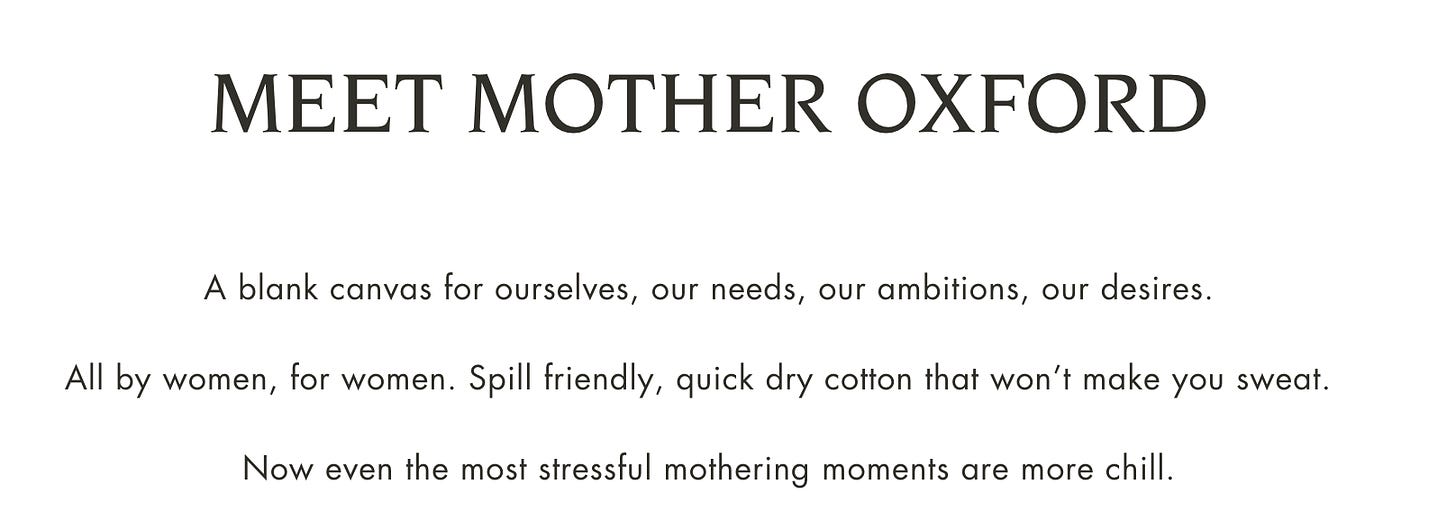
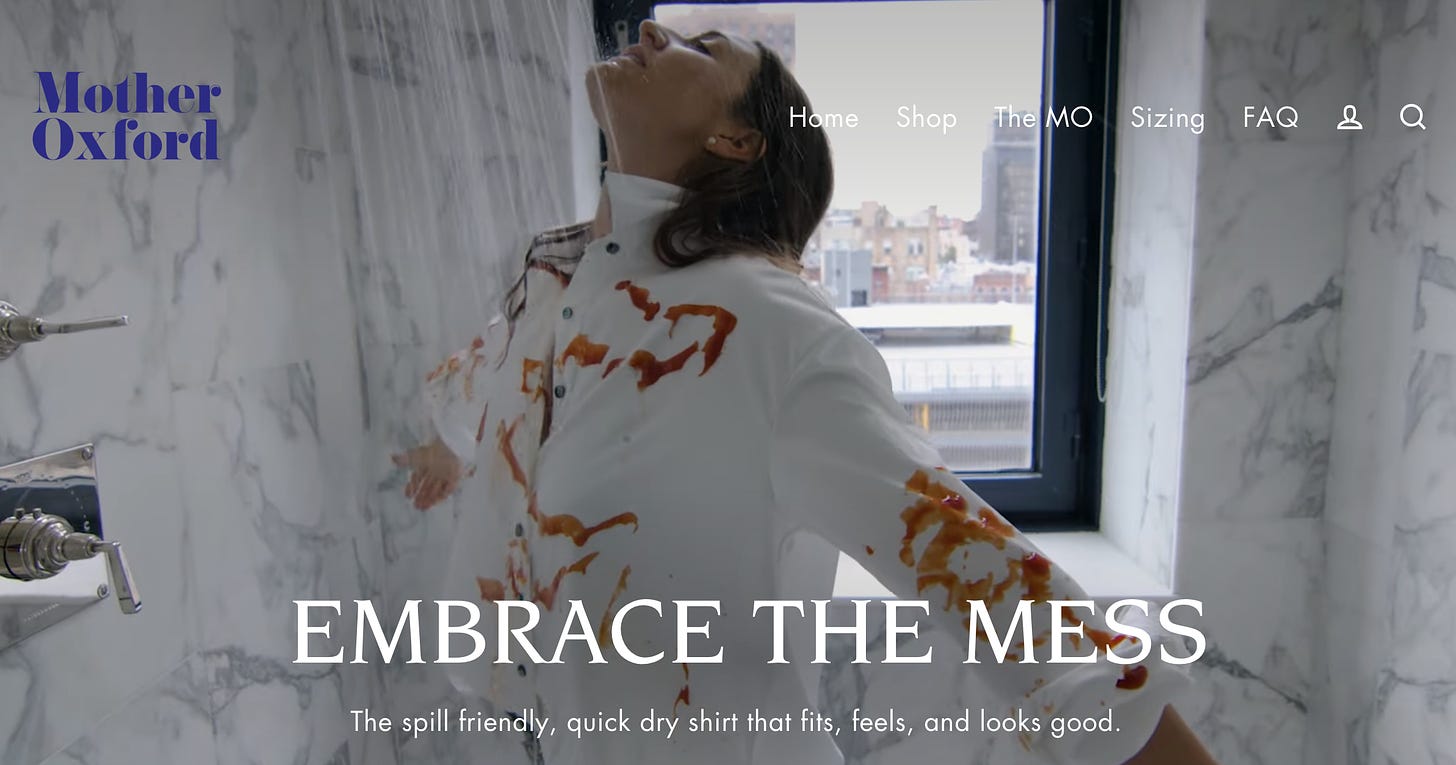

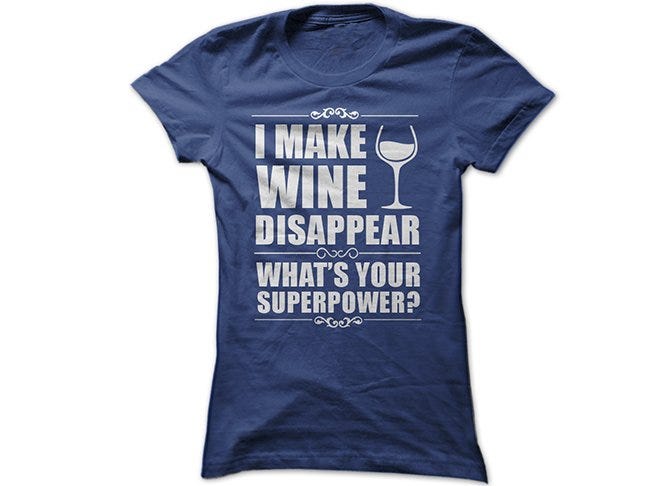

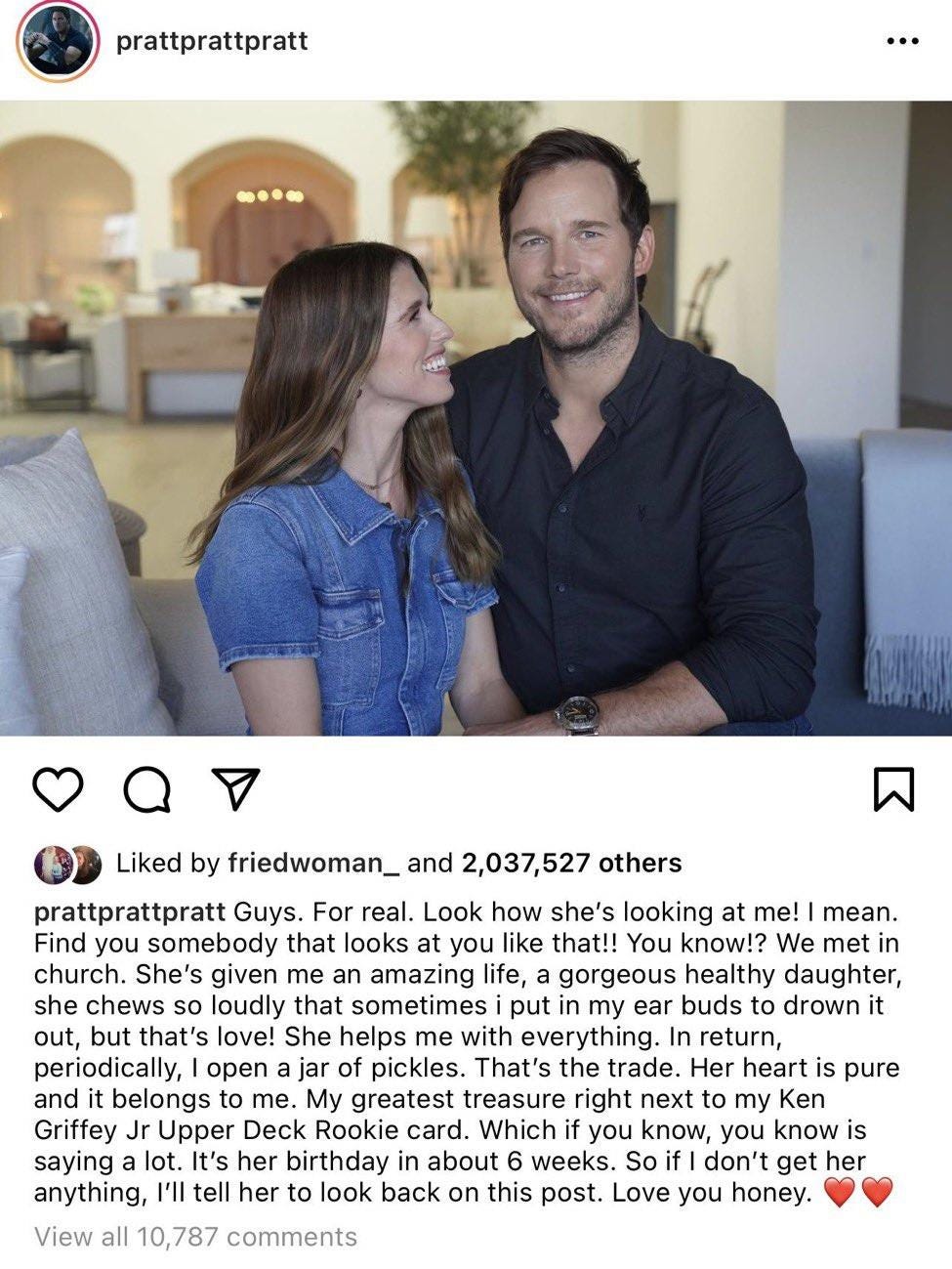
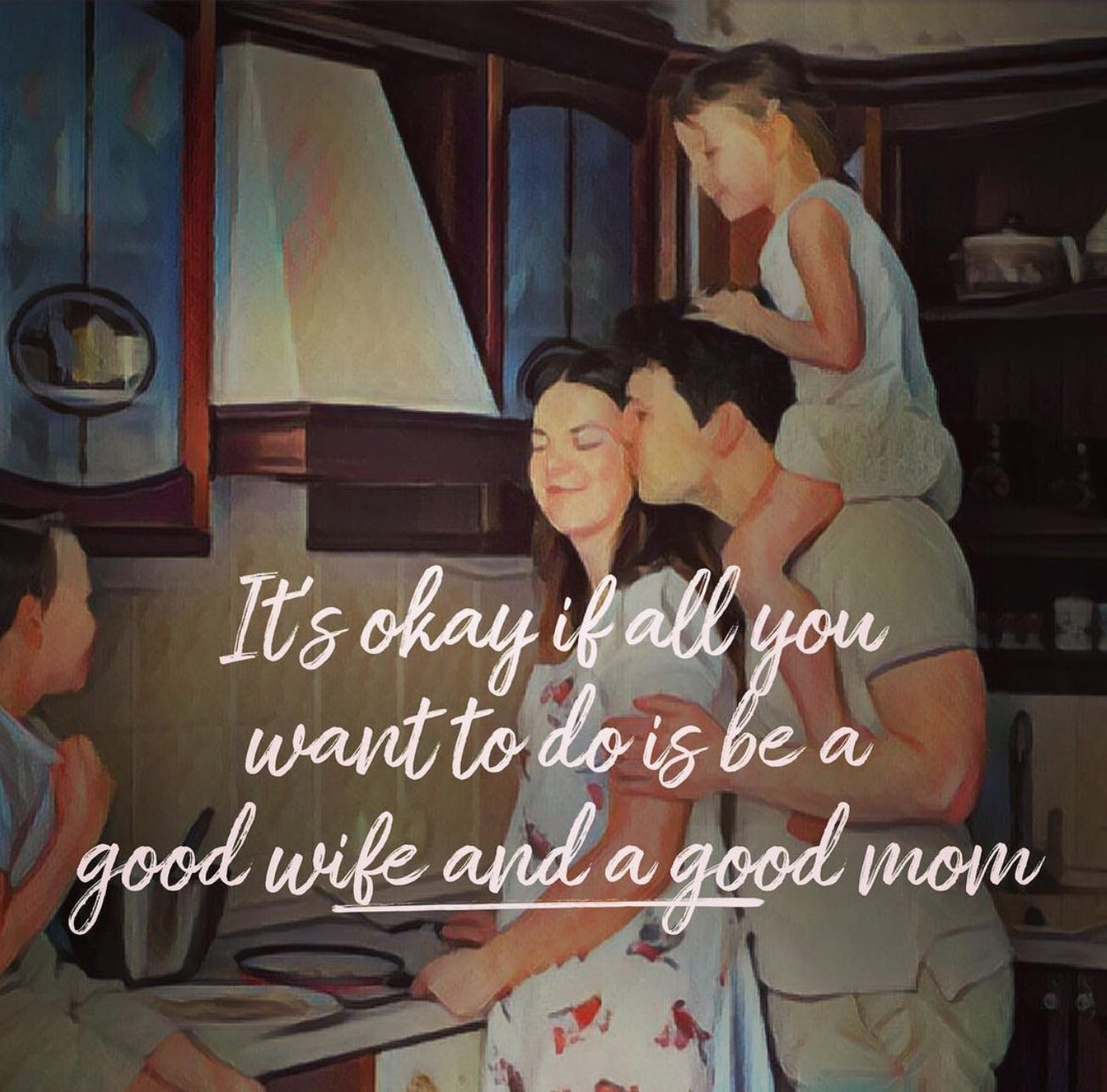



I found out I was pregnant 6 weeks ago. As an adjunct professor, I knew I would need to work through labor, delivery, and post partum in order to keep paying our bills. I was extended 50% of my pay for 6 weeks as maternity leave. 50% pay would have been insufficient; I am our primary breadwinner. The sheer panic, terror, and incandescent rage I felt knowing I would not even get a week to care for my infant is hard to quantify. It made those early weeks of pregnancy the most stressful of my life. And I thought, almost daily, about a miscarriage or abortion for this very wanted pregnancy. Ultimately, nature (or the herculean amount of stress I was under) made the decision for me: I started miscarrying 12 days ago. And I was grateful.
The absolute lunacy that is the lack of paid family leave in America cannot be understated. Even being pregnant was wildly hard on my body. Moreover, it was something I could not grasp fully while we were simply "trying" to get pregnant, but something that became horrifying and desperation-making as soon as I *was* pregnant. Now, post miscarriage, I think we may choose to remain child free. The physical damage to the body, the lack of support for women, the lack of affordable child care, the collapsing climate all make motherhood one of the riskiest activities a woman can undertake today. And frankly, I'm not sure it's worth it. Unless, of course, you have the money. But really, people with money are the only people the American government wants having babies anyway.
All of the above -- and less coherently, i have been thinking a lot about cleaning (household cleaning mostly) and the tyranny of standards, especially as it's a way in which racial and gender hierarchies get reinforced. cleaning is never seen as care work. but it is. white women, especially progressives, are super cagey about talking about the support they can pay for, whereas it's taken-for-granted among men (mostly those who don't have women to do or negotiate this for them). likewise, i'm so impressed by my students (college grad and undergrad) who are pumped to talk about gender inequities and teach me phrases like "weaponized incompetence" and know so much and are less willing to put up with a lot, but then the women do a lot of care work, especially emotion labor, for men they know. the men "try" -- they're less likely to take up space in class than previous generations -- but they definitely are completely unaware of how much they expect their needs to be met in so many ways. when i don't call on them. when I spend less time on their paper. when I tell them their ideas need work. basically any time, I, an older woman, don't tell them they're amazing or fabulous for being "aware" of misogyny. and there's a way in which this all leads back to convenience -- I'm just not sure what it is, yet, but I hear a lot of men talking about being "inconvenienced," as if this is a benign or ordinary expectation.